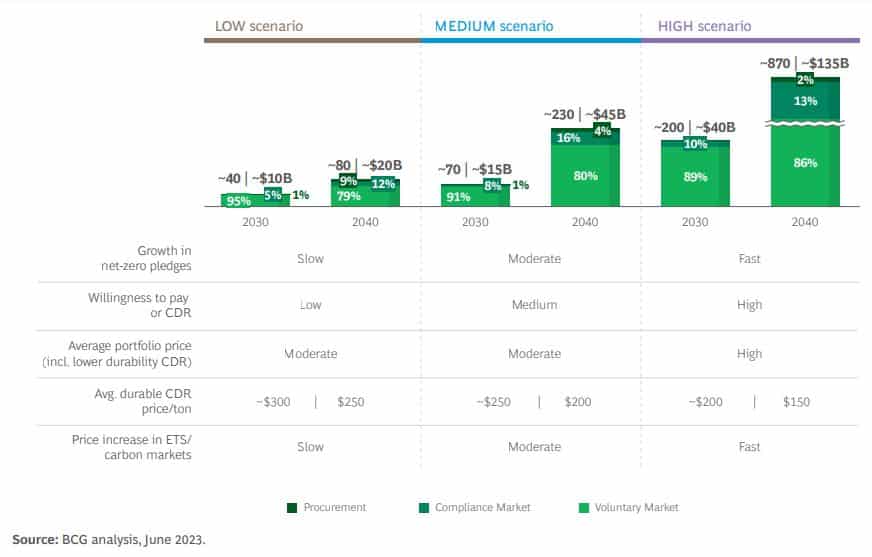Carbon credit insurance company Kita Earth has entered the Canadian market, offering companies reliable carbon insurance policies for carbon removal credits.
Canadian investors and buyers can now leverage Kita’s Carbon Purchase Protection Cover to insure their forward-purchased carbon credits. The insurance product doesn’t only insure against delivery risk but also allows for more investment flowing into high-quality carbon projects.
World’s First Carbon Credit Insurer
There’s no doubt that carbon dioxide removal (CDR) is crucial in fighting climate change. The world has to remove billions of tonnes of carbon to achieve net zero emissions by mid-century. And this entails huge investment or financing to scale CO2 removal at the pace the planet needs.
But that financing has a risk – the carbon credits purchased may not be delivered for any unknown or foreseeable reason.
With a lack of supply to meet rapidly growing demand, top buyers of carbon removal credits often prefer pre-purchasing the credits. However, it takes years for carbon projects to generate reliable and verified carbon credits. Thus, there’s a high risk of underdelivery.
The risk brings uncertainty, deterring significant carbon removal innovation and investments. Unfortunately, such risk has been uninsurable until Kita develops a solution.
Kita Earth, a UK-based startup, is the world’s first carbon insurer formed in December 2021. It seeks to ensure CO2 removal credits that are often forward-purchased and carry delivery risks.
The company’s goal is to minimize uncertainties in buying the credits and promote the growth of carbon credit markets.
In cases where the carbon credits fail to deliver the promised results, Kita’s insurance covers the buyer’s loss. This innovative solution offers a critical safeguard for companies and organizations wanting to offset their carbon emissions.
Why Insure Carbon Credit Purchases?
Businesses and governments worldwide must execute their net zero emissions strategies well. Otherwise, the planet will continue to experience the worst effects of climate change.
Alongside massive emission reductions, achieving net zero targets also calls for carbon removal credits. Tech giants have been clear and vocal about their support for removal credits, investing millions of dollars in it.
The same goes with national governments, from the U.S. to the UK, various subsidy programs have funded carbon removal technologies and innovations. These projects are mostly early stage, needing significant capital injection to scale and deliver the much-needed removal capacity.
Corporate net zero pledges are propelling the demand for carbon removal credits, with large companies supporting initiatives that generate them.
In a report published by BCG, they projected that demand for durable CDR will stand between 40 to 200 million tonnes of CO2 a year by 2030. That’s worth around $10 to $40 billion, with the potential to even grow higher up to $135 billion in 2040.
That’s equivalent to a demand of 200 – 870 MtCO2/year from 2030 to 2040 as shown in the chart.
To meet that massive demand for carbon removal credits, investment in CDR must be more than $100 billion by 2030.
There’s a catch, however: carbon removal needs time to scale up, both for natural and technological solutions. Currently, the existing supply can’t meet demand.
So corporations are turning to pre-purchased carbon credit deals to future-proof their net zero targets. They also do it to secure future supply of high-quality CDR.
To safeguard those purchases in case the expected results aren’t delivered, Kita’s Carbon Purchase Protection comes to the rescue.
By managing the risk involved in carbon credit transactions, Kita helps attract more investments into projects with positive climate impact. The company’s insurance policies are underwritten by London-based Lloyds, ensuring the credibility of their insurance coverage for the Canadian market.
The expansion builds on Kita’s current insurance coverage for companies in the UK and the US. With this new market entry, Canadian buyers can peacefully invest in carbon credits knowing that their purchases are protected while contributing to a sustainable and climate-positive future.


